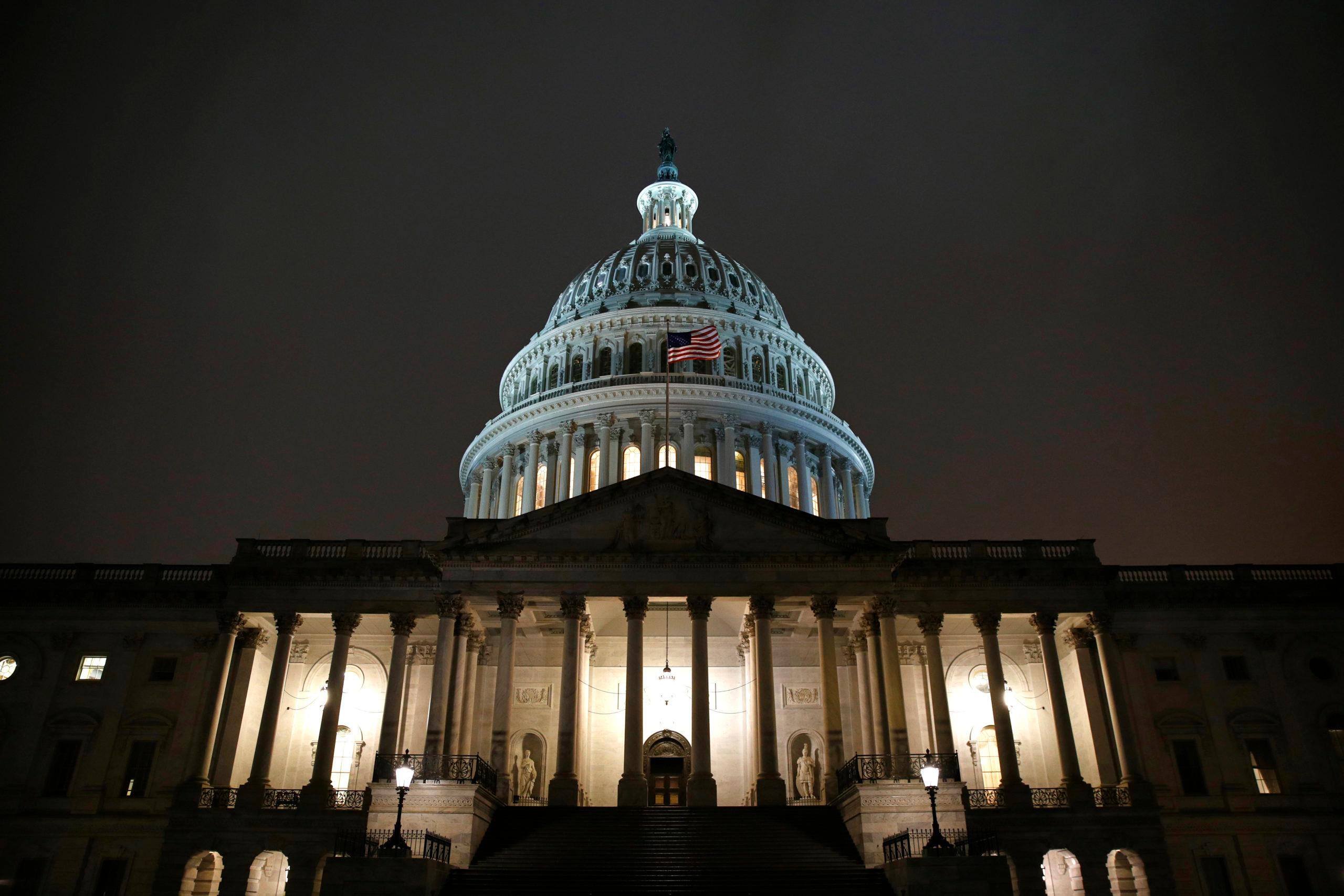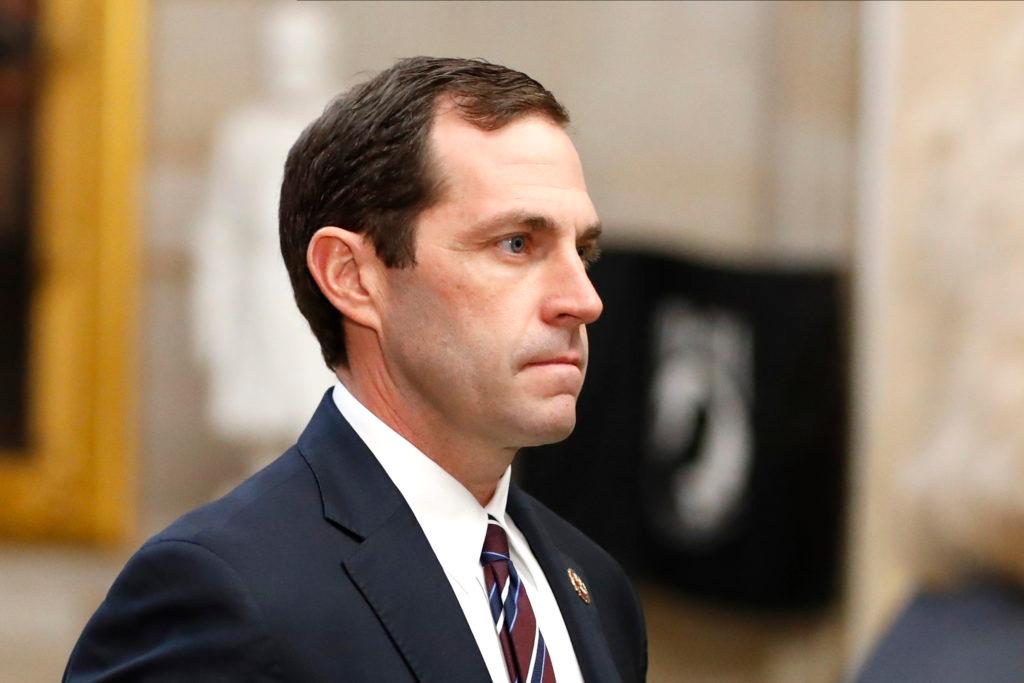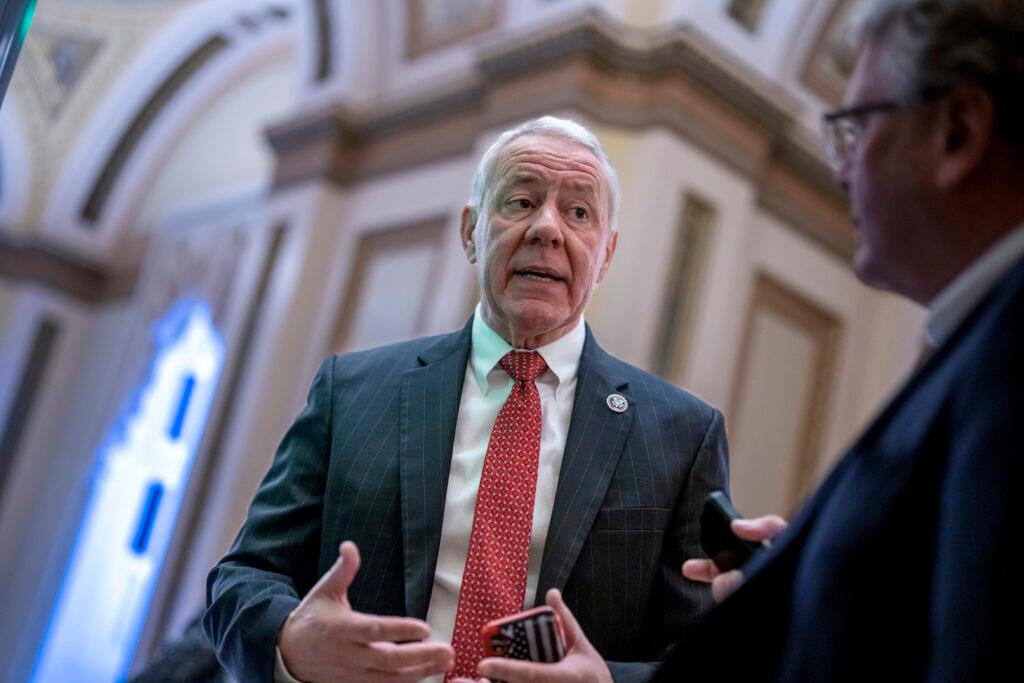
“Sometimes I feel like I'm in a sitcom and everybody is just doing ridiculous acts and trying to get on TV and not doing the work, and it's incredibly frustrating.”
That’s how freshman Democratic Rep. Brittany Pettersen describes her time at the U.S. Capitol so far. She knew when she ran for the seat to expect some level of dysfunction coursing through the marble halls, but even this sunny lawmaker was surprised at “how bad it’s gotten.”
“It's really concerning because we need two functional parties,” she said. “We need each other to really challenge each other’s perspectives and bring good ideas and actually find common ground.”
The 118th Congress has been historically unproductive; since beginning work in January 2023, it’s passed fewer than 40 bills into law. It has kicked the can on major pieces of must-pass legislation, from the budget and the Farm Bill to the reauthorization of the Federal Aviation Administration and the Foreign Intelligence Surveillance Act.
The next big test awaits the House when it returns from recess on February 28: Whether its members can pass some funding bills in less than a week. Otherwise, congressional inaction will lead to a partial government shutdown after March 1, a fate lawmakers narrowly avoided twice last year.
The quagmire stretches well beyond hard-to-agree on things like spending, though. Even non-controversial, bipartisan bills are getting stuck in limbo in the House, with less being brought to the floor than in past years.
“That is an intentional choice Republicans have made, because unfortunately, in their view, bipartisanship is no longer something to be applauded,” said. Democratic Rep. Joe Neguse.
The latest example of the legislative breakdown is a national security supplemental that would provide aid to foreign partners in Ukraine, Israel, and the Indo-Pacific.
Senators worked across the aisle for months to craft the aid package and passed it before the current recess on a strong bipartisan vote.
But House leaders chose to break for recess a day early, without bringing that bill to the floor or offering an alternative.
Democratic Rep. Jason Crow said if a vote had been held on the military aid package, “it would pass overwhelmingly.” It’s something that even Republicans who oppose additional Ukraine aid admit would happen.
“The problem is that Speaker (Mike) Johnson will not put that vote to the floor because his extreme members are preventing him from doing so. You have a couple of dozen people that are holding everyone else hostage,” Crow said.

After last week’s special election in New York, Republicans are down to just a two-vote majority in the House. That razor-thin majority, plus the rules House leaders are operating under, give individual caucus members power to punish their leader for any move they disagree with.
Outside experts also see the fractures in the Republican party, particularly in the House, as the main culprit holding up work for the entire Congress.
“You have two wings of the party which can’t agree on some very, very basic things. And when you have that you don’t really have a functional majority,” explained Joshua Huder, a senior fellow with the Government Affairs Institute at Georgetown University.
To keep the gavel, Speaker Johnson has been trying to avoid the kind of revolt that ousted his predecessor last year.
“You could put Henry Clay in the speakership right now to lead Republicans and he would fail,” Hurder said of the American politician whose nickname was the Great Compromiser. “The Republican Party right now is functionally broken in the House.”
Colorado freshman Rep. Yadira Caraveo said serving in Congress is a marked contrast from her experience in the state House.

“We’re going home early when there is a whole slate of things to do,” the Democrat said, “because the party in the majority just can’t seem to get themselves together.”
It's not surprising to hear Democrats complain about the Republican majority. But the criticism is also coming from the other side of the aisle. Texas Republican Rep. Chip Roy vented his frustration on the House floor last November.
“One thing. I want my Republican colleagues to give me one thing. One. That I can go campaign on say we did. One,” he yelled to a nearly empty chamber. “Anybody sitting in the complex, if you want to come down to the floor and explain to me one material, meaningful, significant thing the Republican majority has done besides, ‘well, I guess it’s not as bad as the Democrats.’”
The level of frustration from rank-and-file members about the lack of direction from their leadership and all that has not happened is palpable.
When asked if Republican leadership was flying by the seat of their pants, Florida Republican Rep. Byron Donalds replied bluntly, “Oh no, we ain’t flying right now. We, like, crashed.”

The dysfunction is also pushing some lawmakers to the exits. Colorado Republican Rep. Ken Buck is retiring after the end of this year. He admits this Congress hasn’t been productive on meaningful legislation.
“It’s a small majority and it’s hard to get a lot of stuff through at this point,” Buck explained.
Buck points to divided government as another big hurdle; to become law, any bill has to win over both the Republican-controlled House and the Democratic Senate.
“You always have more success when you have unified government — the White House, the Senate, and the House all from the same party — with decent majorities in the Senate and the House. Right now, we have divided government.”
Neguse, however, noted that when he first came to office during another period of divided government, he was able to get more than 10 pieces of legislation through the Republican Senate and signed into law by a Republican president. “The difference here is this particular group of individuals that are running the House today, that have decided that dysfunction and chaos are preferable to bipartisanship and good faith, common solutions.”
Democrats also point out that slender majorities do not have to lead to gridlock. When House Democrats held the chamber by only a handful of votes, they still managed to pass several big pieces of bipartisan legislation, from infrastructure to the CHIPS and Science Act.
However, for some Republicans, that track record is not the sign of a functioning legislative body, but of one with too much control in too few hands. Florida’s Rep. Donalds dismissed those laws, saying they were the work of an autocratic Speaker, who gave members little say in the final product.
“That might be productive in terms of ‘Ooh, they got something done,’ but it is counterproductive to the experience that is America,” Donalds countered.
Hurder, however, said the problems in the House aren’t procedural, “It’s not that we haven’t talked about (legislation) enough, it’s that they talk about it and they won’t compromise.”
A presidential election year isn’t expected to help congressional productivity any. Already, the GOP frontrunner, former president Donald Trump helped to kill Republican support for bipartisan border security legislation, denying Biden a potential win on the issue ahead of their expected match-up.
Still, longtime political watchers point out that while the House may appear like it’s at an impasse on many fronts, it doesn’t mean members aren’t still quietly trying to make progress.
“I wouldn’t necessarily dismiss it as completely ineffective just because it looks like there’s a lot of argument going on right now,” said Seth Masket, professor of Political Science and director of the Center on American Politics at the University of Denver.
Masket said Congress tends to look pretty chaotic right up until the moment it gets something done. One example was the response to COVID-19 in 2020 when a divided Congress managed to pass economic and medical aid ahead of a looming presidential election.
“There have been times when even a very divided Congress has proven able to deal with pretty emergent issues,” he said. But, Masket acknowledged, “It doesn’t look great on that score right now.”
- The Senate is considering a foreign aid package for allies – but it’s unclear if it can pass Congress
- She blames social media for contributing to her daughter’s death. On Wednesday this Colorado mom took her pain to Capitol Hill
- Congress returns to work facing a pileup of work including funding the government to avoid a shutdown









